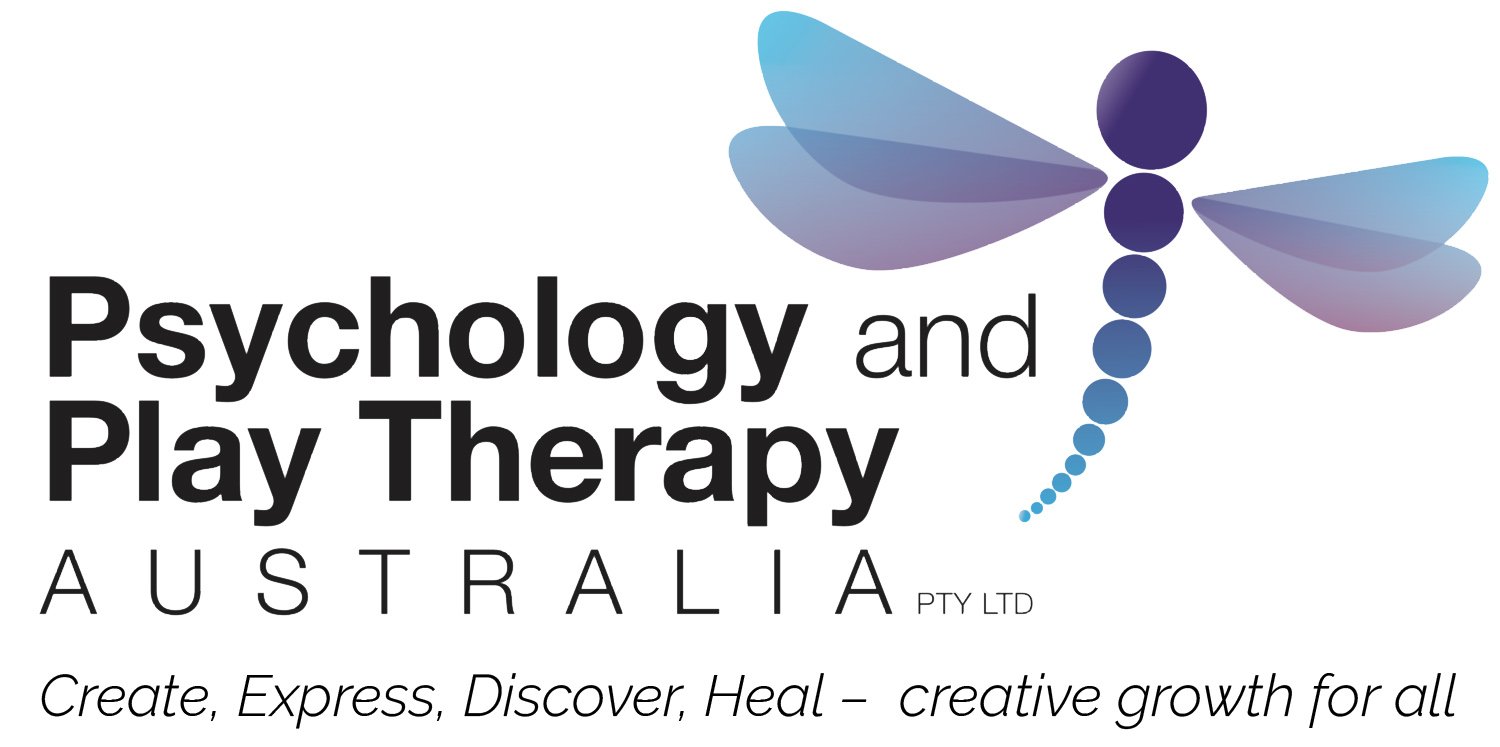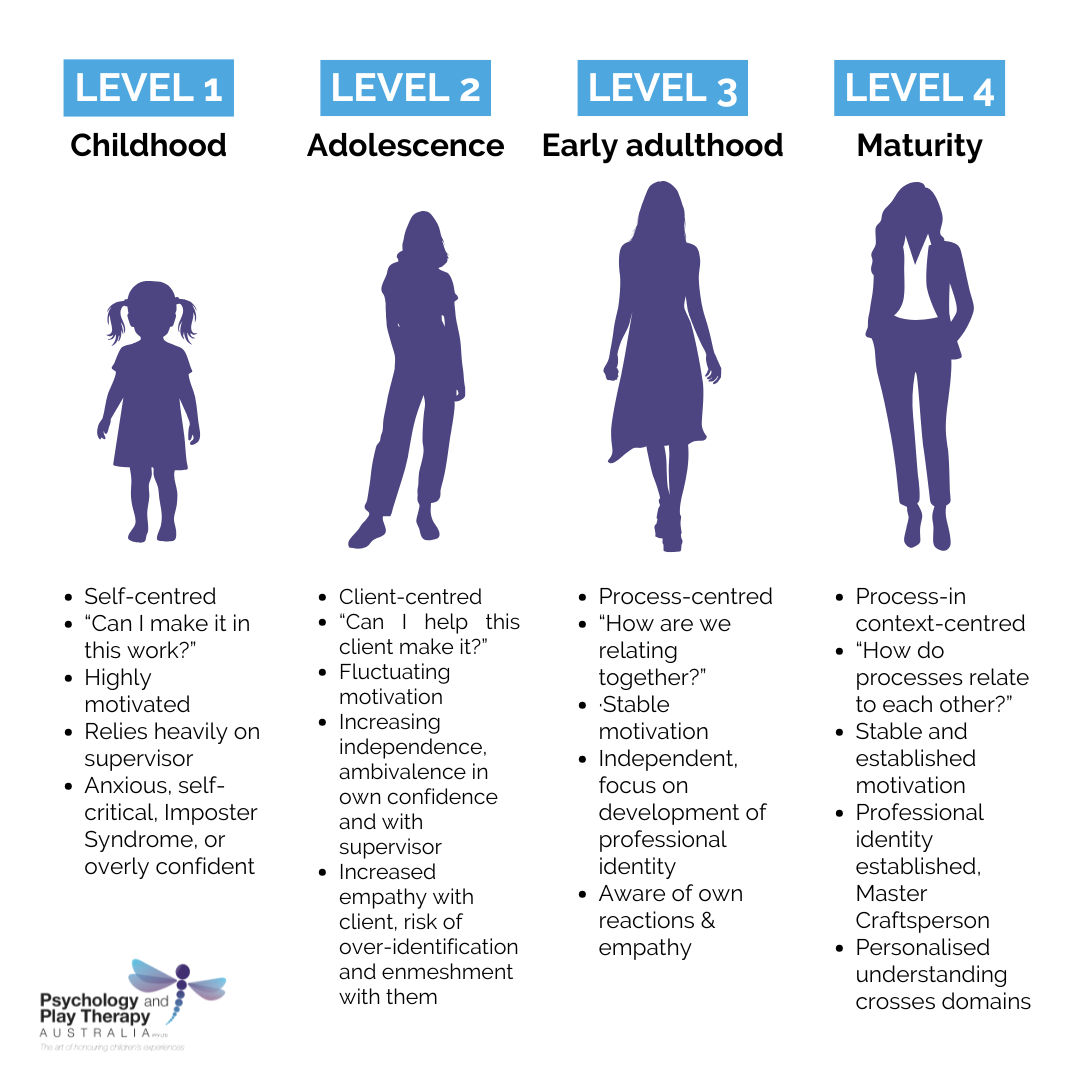Are you ready to take the next step in your professional journey?
It’s easy to make decisions based on feelings like imposter syndrome - believing that you’re not ‘ready’ to move forward, so you end up staying in the same place.
The following model of supervision can help you to reflect on where you’re truly at and whether you may actually be ready to take the next step.
The Integrative Developmental Model (Stoltenberg & McNeill, 2010) outlines four stages of development in the professional journey.
At Level 1, the therapist is highly motivated, yet relies heavily on their supervisor. They may be anxious, self-critical, experiencing Imposter Syndrome or be overly confident. Their focus is self-centred, and their concern is “Can I make it in this work?”.
At Level 2, the therapist has fluctuating motivation and confidence levels, and fluctuates between dependence on their supervisor and autonomy. They are client-centred (with increased empathy with clients, yet risk of overidentification and enmeshment with them) and their concern is “Can I help this client make it?”.
At Level 3, the therapist has stable motivation, and they’re independent with a focus on development of professional identity. They are aware of their own reactions and empathy. They are process-centred, and their concern is “How are we relating together?”.
At Level 4, the therapist is stable and established in their motivation and professional identity - a Master Craftsperson. Their personalised understanding crosses domains and they are process-in context-centred, with a concern of “How do processes relate to each other?”.
THERAPIST REFLECTION PROMPT:
Which stage of professional development do you identify at?
If you’re ready to take the next step in your career and move into providing supervision to other play therapists, our 4 Day Play Therapy Supervisor Training (starting in June 2025) is for you.

